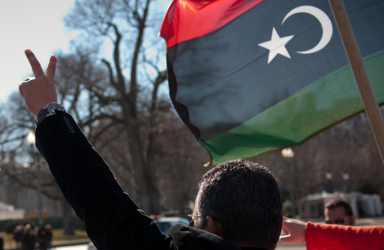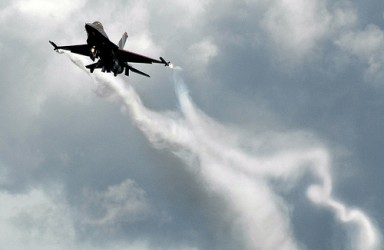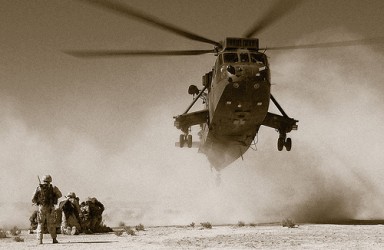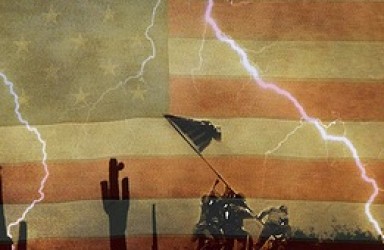Libya: The Coming Peace
No peace is perfect. But a flawed peace is probably better than no peace at all. Contingency peace plans are not guarantees of success in such war-torn countries as Libya, but neither are they idle dreams. The international community needs such a unified plan to secure a better peace in Libya. If they fail to plan a post-war peace in Libya, the intervening powers are planning to fail.
The Arab Spring and the Future of Iran-US Relations
The Arab Spring will most probably exacerbate areas of conflicting interests between Iran and the US, as the regional designs and aspirations of both nations are deeply antithetical. One may argue that the prospect of a violent conflict is looming large on the horizon.
Angus Calder’s ‘The Myth of the Blitz’
The Myth of the Blitz remains an important milestone in the critical analysis of the memory of the Second World War in Britain. Its nuanced treatment of various complex and inter-related topics, and its informative examination of the origins and uses of popular memory, set it apart from other more polemical texts and laid the foundations for future revisionism.
What Is Worse for Israel, Attacking or Not Attacking Iran’s Nuclear Infrastructure?
It is possible that at some point in the next 15-18 months Israel’s policy-makers and military officials will need to decide whether or not to attack Iran’s nuclear infrastructure. That would certainly be one of the most complicated decisions since the establishment of the State of Israel.
War by Network – the Modern Revolution in Military Affairs
Warfare today is changing. The course of conflict in the 21st century, and the problems we in the West may continue to face in the coming decades are mutating, developing and adapting in ways that make their defeat – whilst not necessarily more difficult – an entirely different prospect to face.
Nuclear Ambitions in Asia: The Paper Tiger Revisited
The final result of the growth of the PRC’s military capacity is, perhaps, that China’s nuclear perspective will be exported abroad. Countries in the region that are concerned for their security should realize this truth and take steps to avoid a nuclear escalation that would do little to deter the doctrinally-different military culture of the People’s Republic of China.
SIX REASONS FOR AMERICA TO BE A RELUCTANT INTERVENER
America’s great power and wealth tempts some to advocate its intervention when civil wars in weakly or ungoverned lands threaten to become humanitarian disasters or when tyrants refuse to surrender their thrones. Our aid for victims should be readily offered in these cases, but very rarely should our troops. America must avoid becoming the global policeman, self-designated or not
The 2011 Scottish General Election: Implications for Scotland and for Britain
There is an urgent sense that something massive happened on 5 May, Scotland came close to becoming a one-party state. Independence has in my mind been a practical option for nearly 40 years. Now suddenly, independence is a likelihood. There is a new political landscape.
American Intervention in Failing Countries is Neccessary
Intervention to stabilize and reconstruct failed, failing, fragile, and even re-orient hostile countries may not be avoidable for the U.S. and also for its E.U. partners. But for intervention to be successful it must be undertaken cautiously, preemptively when possible, and swiftly, with coalitions of willing partners.
Transcending Meta-Narratives: Unpacking the Revolutions in Egypt and Tunisia
From afar, the protests in Arab countries seem broadly similar: economic factors – such as the global recession’s impact on migrant remittances, as well as rising food prices – are being cited as the impetus for the revolts. Yet while economic grievances are not irrelevant, the structural meta-narrative, just like the cultural one, is problematic.

![Image by [john]](https://www.e-ir.info/wp-content/themes/yamidoo-child/scripts/timthumb.php?src=http://www.e-ir.info/wp-content/uploads/john2.jpg&w=384&h=250&zc=1)













